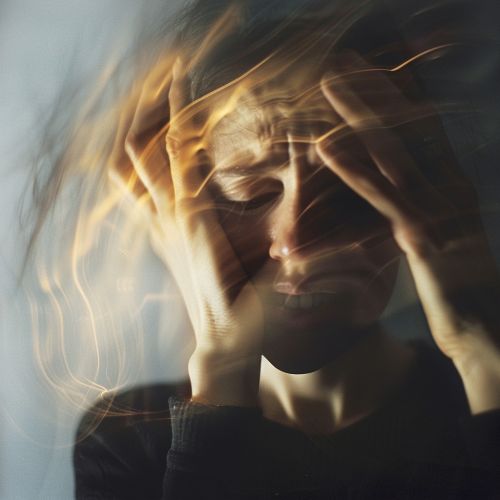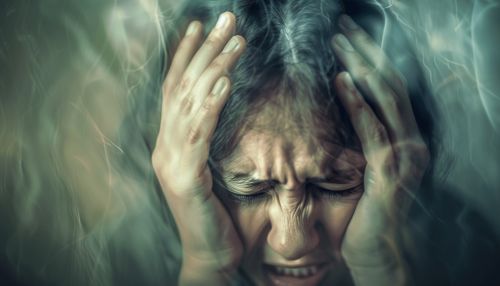Stimulant Psychosis
Introduction
Stimulant psychosis is a mental disorder characterized by psychotic symptoms such as hallucinations, delusions, and disorganized thinking, which are induced by the use of stimulant drugs. These drugs include amphetamines, methamphetamine, cocaine, and certain prescription medications used to treat attention deficit hyperactivity disorder (ADHD) and narcolepsy. The condition can manifest during intoxication, withdrawal, or chronic use of stimulants.
Epidemiology
Stimulant psychosis is relatively common among individuals who abuse stimulant drugs. The prevalence varies depending on the substance, dosage, frequency of use, and individual susceptibility. For instance, chronic methamphetamine users have a higher risk of developing psychosis compared to those who use cocaine intermittently. Studies suggest that up to 40% of methamphetamine users may experience psychotic symptoms at some point.
Pathophysiology
The pathophysiology of stimulant psychosis involves complex interactions between neurotransmitter systems, particularly the dopaminergic and serotonergic pathways. Stimulants increase the release of dopamine and serotonin in the brain, leading to heightened arousal and euphoria. However, excessive stimulation of these pathways can result in neurotoxicity and dysregulation, contributing to psychotic symptoms. Chronic use of stimulants can also lead to structural and functional changes in brain regions such as the prefrontal cortex and striatum, further exacerbating psychosis.
Clinical Features
The clinical presentation of stimulant psychosis can vary widely but typically includes:
Hallucinations
Hallucinations are sensory perceptions that occur without external stimuli. In stimulant psychosis, visual and auditory hallucinations are most common. Patients may see vivid, disturbing images or hear voices that are not present.
Delusions
Delusions are false beliefs that are firmly held despite evidence to the contrary. Common delusions in stimulant psychosis include paranoid delusions, such as believing that one is being watched or persecuted, and grandiose delusions, such as believing in one's exceptional abilities or importance.
Disorganized Thinking
Disorganized thinking is characterized by incoherent speech, tangentiality, and difficulty in organizing thoughts. Patients may exhibit rapid, pressured speech and jump from one topic to another without logical connections.
Agitation and Aggression
Agitation and aggression are common in stimulant psychosis, particularly during acute intoxication. Patients may become restless, irritable, and prone to violent behavior.


Diagnosis
The diagnosis of stimulant psychosis is primarily clinical, based on the history of stimulant use and the presence of psychotic symptoms. It is essential to differentiate stimulant psychosis from other psychiatric disorders such as schizophrenia, bipolar disorder, and primary psychotic disorders. A thorough assessment, including a detailed history, mental status examination, and toxicology screening, is crucial for accurate diagnosis.
Treatment
The treatment of stimulant psychosis involves both pharmacological and non-pharmacological approaches:
Pharmacological Treatment
Antipsychotic medications are the mainstay of treatment for acute psychotic symptoms. Typical antipsychotics such as haloperidol and atypical antipsychotics such as olanzapine and risperidone are commonly used. Benzodiazepines may be administered to manage agitation and anxiety.
Non-Pharmacological Treatment
Non-pharmacological interventions include supportive care, psychotherapy, and behavioral therapy. Cognitive-behavioral therapy (CBT) can help patients develop coping strategies and reduce the risk of relapse. Long-term treatment may involve substance use disorder programs and rehabilitation to address underlying addiction issues.
Prognosis
The prognosis of stimulant psychosis varies depending on the duration and severity of stimulant use, the presence of underlying psychiatric conditions, and the effectiveness of treatment. Acute psychotic episodes often resolve with appropriate treatment and cessation of stimulant use. However, chronic use can lead to persistent psychotic symptoms and cognitive deficits, necessitating long-term management.
Prevention
Preventing stimulant psychosis involves reducing the use and abuse of stimulant drugs. Public health initiatives aimed at educating individuals about the risks of stimulant abuse, promoting safe prescribing practices, and providing access to addiction treatment services are essential. Early intervention and treatment of substance use disorders can also mitigate the risk of developing psychosis.
